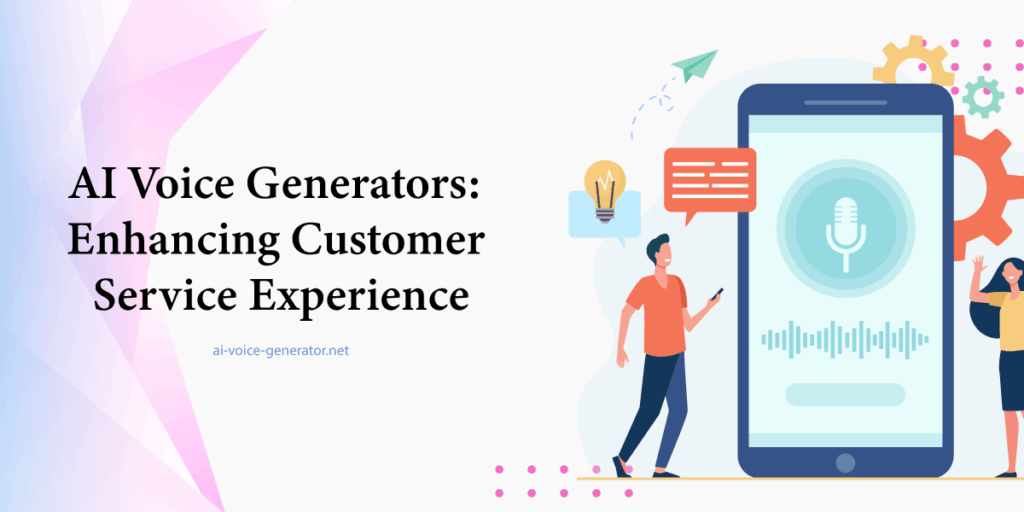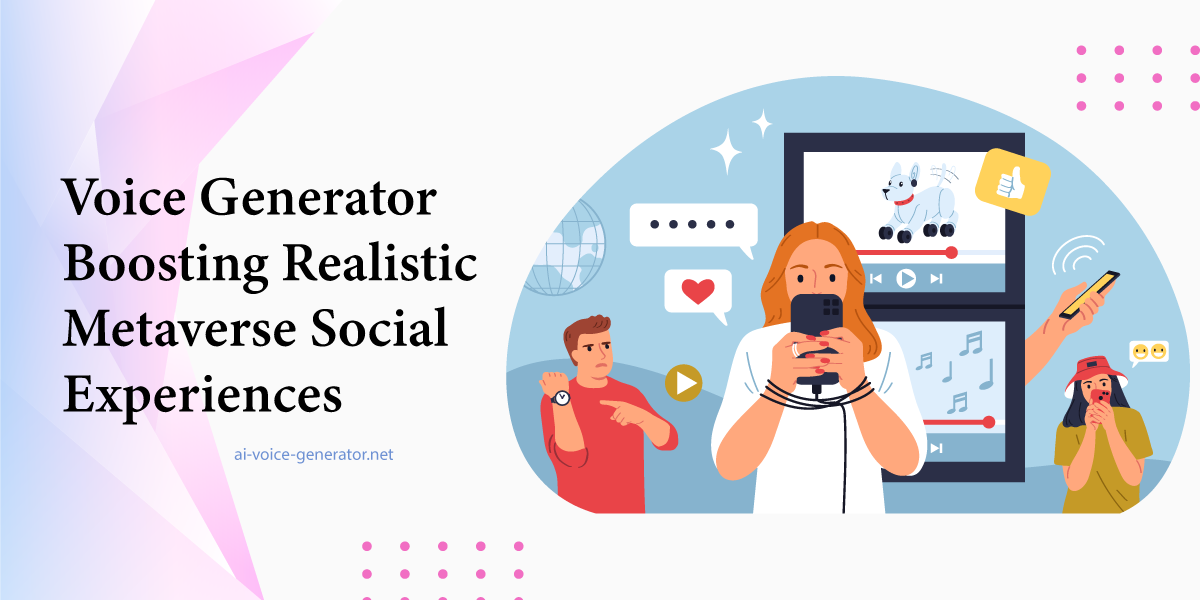
AI Voice Generators: Enhancing Customer Service Experience
In today’s fast-paced digital landscape, customer service is evolving rapidly, driven by technological advances that aim to make interactions smoother and more satisfying. One of the most fascinating developments is the rise of the AI voice generator technology, which is reshaping how businesses engage with their customers. Unlike traditional automated calls, modern AI-powered voices provide a more natural and engaging experience, helping companies build stronger relationships with their clientele.
The implementation of AI hold music during waiting periods is also becoming smarter and more personalized, making customer wait times feel shorter and less frustrating. These enhancements are powered by sophisticated algorithms that generate not just pleasant tunes but also adaptive soundscapes tailored to the caller’s profile and mood. This approach is a part of the broader shift toward using conversational AI in customer interactions, which strives to make every exchange feel less robotic and more human.
The Role of Interactive Voice Systems in Modern Call Centers
At the heart of many customer service centers today lies interactive voice response (IVR) technology, which serves as the first point of contact for callers. IVR systems powered by call center technology have transformed from simple menu-based systems into advanced platforms that can understand complex requests and provide relevant answers. When combined with custom AI voices, these systems no longer sound monotonous or scripted; instead, they offer dynamic and context-aware responses that enhance customer satisfaction.
Using AI voice personalization, businesses can tailor the caller’s experience by adjusting tone, speed, and phrasing based on the customer’s history and preferences. This level of customization not only improves efficiency but also creates a welcoming atmosphere, making users feel valued. Companies investing in synthetic speech in customer service are able to reduce costs while maintaining high-quality communication, which is essential in today’s competitive market.
How Human-Like AI Voices Are Changing Customer Interaction
One of the key breakthroughs in voice technology is the development of human-like AI voices that closely mimic natural speech patterns, intonations, and emotional cues. These voices help reduce the common frustrations associated with automated services by sounding friendly and empathetic. The integration of such voices into customer service platforms allows businesses to maintain a professional tone while still being approachable.
Moreover, AI voice branding is becoming an important strategy for companies aiming to establish a unique auditory identity. By developing distinct voice personas, brands can ensure consistent messaging across all customer touchpoints, strengthening brand recall and loyalty. This tactic is especially valuable in environments where verbal communication is the primary channel, such as phone support and voice assistants.
The Technical Backbone: Voice Synthesis and Call Center Innovation
The technology behind these advancements is rooted in sophisticated voice synthesis methods that convert text into lifelike speech. This process involves deep learning and neural network models trained on vast datasets of human voices, allowing the AI to generate speech that is not only intelligible but also emotionally resonant. When integrated into call center technology, voice synthesis enables automated agents to handle a wider range of queries with a natural conversational flow.
With AI systems becoming more robust, call centers can now offload repetitive tasks to automated agents equipped with these advanced voices, freeing human representatives to focus on more complex issues. This combination of automation and personalization is driving a new era of customer service efficiency.
AI Voice Generators and Personalized Customer Journeys
Personalization is a key driver of customer satisfaction, and AI voice generators offer unique opportunities in this space. By analyzing caller data, AI systems can customize conversations in real time, adapting responses to suit individual needs and preferences. This ability to offer personalized dialogue enhances engagement and helps resolve issues faster.
Furthermore, incorporating AI hold music tailored to different customer segments improves the overall waiting experience, making it less tedious. Personalized auditory cues throughout the call journey, enabled by conversational AI, support brand consistency and foster a sense of care and attentiveness.
At this point, it is worth exploring solutions that leverage these capabilities to their fullest potential. You can discover more about advanced AI voice generator technology designed for customer service by visiting this innovative AI voice generator. This resource provides tools for businesses to create custom voice solutions that enhance user experience with natural, human-like interactions.
Challenges and Ethical Considerations in Using AI Voices
While the benefits of AI-powered customer service are clear, there are challenges and ethical questions that must be addressed. For instance, maintaining transparency about the use of synthetic speech in customer service is crucial to preserve trust. Customers should be informed when they are interacting with AI rather than a human to avoid feelings of deception.
Additionally, the quality of custom AI voices must be consistently high to avoid misunderstandings or frustration. Poorly designed voices can lead to negative experiences and harm a brand’s reputation. Security and privacy also remain critical concerns, especially when conversational AI handles sensitive personal data.
The Future of Interactive Voice Response in Customer Experience
Looking ahead, interactive voice response systems will continue to evolve by incorporating emotional intelligence and deeper contextual understanding. These systems will leverage more advanced conversational AI models that can detect user sentiment and adjust responses accordingly. This evolution will further blur the line between human and machine communication, offering seamless support experiences.
Moreover, the integration of AI voice personalization with other channels like chatbots and virtual assistants will enable truly omnichannel customer service. Customers will enjoy consistent, high-quality interactions regardless of their preferred communication method.
Voice Branding: Crafting Unique Auditory Identities
Brands increasingly recognize the value of AI voice branding as part of their identity strategy. Just as logos and colors convey brand personality visually, unique AI-generated voices communicate tone and style auditorily. This development helps brands differentiate themselves in crowded markets, especially in industries where phone interactions remain vital.
By using human-like AI voices crafted specifically for their brand, companies can ensure that every call reflects their values and commitment to customer care. Voice branding also helps build familiarity, making customers feel more comfortable and connected.
AI in Call Centers: Bridging Efficiency and Empathy
The use of AI in call center technology is not merely about automation but enhancing the quality of human interactions. AI voice systems support representatives by handling routine inquiries and providing real-time information during calls. This collaboration allows agents to offer more empathetic and informed service.
Moreover, AI-generated voices can provide consistent support 24/7, meeting customer expectations for availability and responsiveness. This balance between AI and human agents is crucial for delivering personalized, high-quality customer experiences.
Embracing Voice Synthesis for Scalable Support
As businesses scale, maintaining service quality across a growing customer base becomes challenging. Voice synthesis technology addresses this by enabling automated, natural-sounding communication at scale. Unlike traditional IVR systems that sound mechanical, modern voice synthesis delivers fluid and engaging interactions that retain customer attention.
This capability is especially valuable during peak times or crises, where rapid response is essential. AI voice systems can handle surges in volume without compromising the user experience.
Conclusion
The integration of AI voice generator technology into customer service marks a significant shift in how companies engage with their audiences. From AI hold music to advanced interactive voice response systems, these innovations create richer, more personalized experiences that resonate with users. The development of custom AI voices and AI voice personalization adds depth and authenticity to automated communications, bridging the gap between human and machine.
As call center technology continues to advance, businesses that leverage these tools will be better positioned to meet evolving customer expectations. By embracing synthetic speech in customer service and focusing on AI voice branding, brands can cultivate loyalty and trust in a competitive marketplace. The future of customer service lies in the seamless blend of technology and empathy, enabled by the power of AI-driven voices.
Frequently Asked Questions (FAQs)
An AI voice generator uses artificial intelligence to create natural-sounding voices that can speak text in a human-like manner, often used in customer service and other applications.
AI hold music adapts to the caller’s mood and preferences, making wait times feel shorter and less frustrating by playing personalized, pleasant soundtracks.
Conversational AI refers to AI systems capable of understanding and responding to human speech naturally, enabling more interactive and effective customer interactions.
Interactive voice response systems use automated menus and speech recognition to guide callers and provide answers without human intervention.
AI voice branding helps companies create a unique and consistent voice identity, strengthening brand recognition and customer loyalty across voice interactions.

